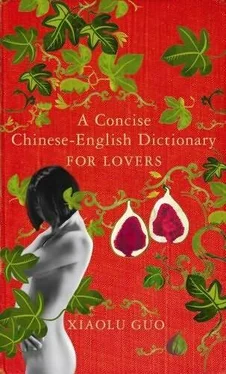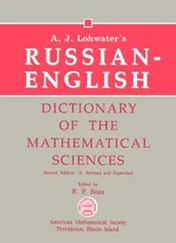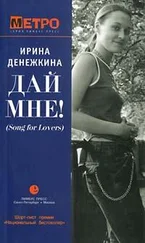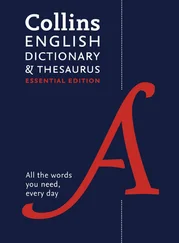The life in the past and the life at the present are very different. When I first met you, I remember you always talked and smiled. You talked about interesting things in an interesting way, and you had a charming language. You used beautiful words, funny words, sexy words, electric words, noble words. Your language was as attractive as you. But what happened? It has changed. After all these fightings, all these miseries, you don’t talk as the way you did before. You just listen; listen to my words; then stop listening and think of your own world. But I can’t stop talking. I talk and talk, more and more. I steal your words. I steal all your beautiful words. I speak your language. You have given up your words, just like you gave up listening. All you do is sleep, more and more sleep.

bestseller n. a book or other product that has sold in great numbers.
Last night I had a dream. I dreamed I was a cookery writer writing for housewifes who bored with their unimaginative life. I dreamed my book eventually exposed on the most visible and conspicuous shelfs in Waterstones. I become a bestseller who has the fame in England, Scotland, and even in Wales. My book was called Getting to Grips with Noodles: 300 Ways of Chinese Cooking . Actually, at the beginning of my dream, there were only ten recipes of cooking noodles, but in the dream I had the idea that a year has 365 days and I should write at least 300 different recipes. Rest of sixty-five days in a year people can have rice or bread or alternative food they like.
I remember the first dish in my book is called:
Dragon in the Clouds
The recipe is: thin rice noodles with fried tofu and bean sprouts in a chicken soup. So everything looks white and gentle like clouds.
And other noodles dishes in my dream are:
Red River
Mussels with spring onions in chilli noodles soup
Double Happiness
Roast duck and pork with fried noodles
Dragon Palace
Sliced eel with rice noodles in ginger soup
It’s also about two-way-cooking, meaning either it can be prepared as Chinese food or it can become Italian spaghetti. For example, one can just change ginger into basil, or replace chilli to rosemary with a bit cheese, then noodles will get totally different identity .
End of dream, there are a group of fat middle-aged English womans talking about my book in a countryside tea-house. They are all having their afternoon teas and carrot cakes with my book opened on the table, and discuss where is the nearest Chinese shop that they can buy all the ingredients.
I wake up and I don’t know where is this idea from. I guess from my hunger for Chinese food. I am longing to eat hot dumplings with fennel and pork stuffing, and I am dying for roasted duck and spicy beef. Abroad, thinking of food is everyday’s obsession.
There is an important thing in the dream: I am too ashamed to use my real name on the cover of the book because I know as soon as I get famous in West, Chinese will find out immediately and make a fuss. A writer who doesn’t write history or serious novels, but write about cooking noodles for English people-that would be a scandal in China. So I choose “Anon” as my name, the person who has no name.
Getting up from the bed, I feel hungry. I have a great urge to taste those specially made noodles but, when I try remember how to cook the dream noodles, nothing comes in my head. I open the cupboard and take out a pack of instant noodles.

*
Future Tense Sometimes when we talk about the future, we are just predicting. We are saying what we think will happen, without any reference to the present. At other times, we are really talking about the present and the future together. This happens, for example, when we talk about future actions which are already decided, or which we are deciding as we talk: making plans, promises, threats, offers, requests.
Mrs. Margaret say I am still no good at verbs, particularly future tense. “Don’t worry,” she always says. “It’s an Asian thing. You’ll get over it.”
Is tense really an Asian problem? How is “time” so clear in the West? Is being defined by Science or by Buddha? Reincarnation, it is not past or future. Is endless loop. A circus, ending and starting is the same point.
At beginning I don’t have concept of tense when I speak English. But now I think I understand more than before, after all our battles.
Sun Tzu, the Chinese master who lived 2,500 years ago, says in the Art of War for Executives :
The ultimate warrior is one who wins the war by forcing the enemy to surrender without fighting any battle.
But neither of us wants to surrender to the other, and neither of us can win the battle. Neither of us is an ultimate warrior. So the battle carries on and on, as follows:
ME: “I want future with you. A home, a house in beautiful place with you, plant some bamboos, some lotus, some jasmines, some of your favourite snowdrops.” (When I describe this, the image so strong that it must be a will from my Last Life.)
YOU: “You can’t have the future now. That’s why it’s the future.”
ME: “I disagree. Future comes from your plan, your real action.”
YOU: “No, that’s not true. The future only comes when it comes. I don’t believe in promises. How can you know the future now? You can only know the future when you get to the future.”
ME: “Does that mean you don’t want future with me?” (I look in your eyes painfully.)
YOU: “You’re always worried about the future. How can we think about getting married when we keep fighting? You’re never happy with the way things are, you always want it to be different to how it is. We can’t be together if you don’t accept my lifestyle and realise you can’t change me. You can’t always want me to be different from how I am.”
You are right, I know. I can’t say anything.
Again I feel like I am the wisteria vine, and I can’t climb and rely on my tree, because that tree is falling.
“Live in the moment!” You impose this idea on me, again.
“Live in the moment,” I repeat. Why do I have to? “Live in the moment, or live for the moment? Maybe you only live for the moment. That is so hippy. I can’t do that as a humble foreigner,” I fight back.
“Well, to live in or to live for the moment, that’s the same kind of concept.”
“No. It is different,” I say, strongly and angrily. I recently learned what is the difference between in and for from Mrs. Margaret. It is definitely a different concept.
“Love,” this English word: like other English words it has tense. “Loved” or “will love” or “have loved.” All these specific tenses mean Love is time-limited thing. Not infinite. It only exist in particular period of time. In Chinese, Love is “

” (ai). It has no tense. No past and future. Love in Chinese means a being, a situation, a circumstance. Love is existence, holding past and future.
If our love existed in Chinese tense, then it will last for ever. It will be infinite.

possess v. 1. to have as one’s property; 2. (of a feeling, belief, etc.) have complete control of, dominate.
Читать дальше
















